Why, money didn't mean anything to me. I'm glad that fire came along and burned the store. Say, if not for that bonfire I might have been a rich man's son and gone to Yale—and never amounted to nothing! [3]
Coughlin acquired his nicknames as a result of working in a bathhouse as a masseur. [4] Eventually he was able to purchase a tavern and several bathhouses of his own.
Political career

Coughlin's tenure was marked by a large amount of corruption, in which he, Kenna, and 19th ward alderman Johnny Powers led the Gray Wolves, a group of notorious aldermen. In the late 19th century Chicago would award franchises to private companies for construction of such utilities as gas and public transit, the latter of which would prove contentious in Chicago. Businesses seeking such lucrative contracts would bribe and otherwise work with the aldermen in a practice known as "boodling". Such antics ultimately led to the creation of the reform organization Municipal Voters' League to run and endorse candidates in opposition to the Gray Wolves. [5] Despite being almost invariably excoriated by the Municipal Voters' League Coughlin himself was re-elected 19 times and never defeated, [6] running unopposed in his last four elections. Indifferent if not enthused about his reputation for corruption, upon being accused of corruption he demanded a retraction not for the charge of graft but for the claim he was born in Waukegan. [4]
Entry into politics
Coughlin was elected alderman as a Democrat [7] from Chicago's First Ward on April 5, 1892 despite having no prior experience in public service. [8] [lower-alpha 1] Coughlin and his partner, fellow First Ward alderman Michael "Hinky Dink" Kenna, were known as the "Lords of the Levee", a district which was part of their ward. The Levee was known as being a vice-ridden section of Chicago and home to many saloons, gambling dens, prostitutes, pimps, and flop houses.
1890s
In 1894 Coughlin was unanimously nominated as the Democratic nominee [9] in what Lloyd Wendt and Herman Kogan would later call "the briefest political convention in Chicago's history" [10] and was reported by the Chicago Herald as lasting "only a few minutes as the delegates were in a hurry to get away to attend a prize fight." [11] However, rival Billy Skakel, who specialized in offering and soliciting gambling on fraudulent stock quotations [11] and hated Coughlin for allowing local Prince Hal Varnell to cut into his turf, [11] formed his own Independent Democratic Party. [12] Working with Sol van Praag, who had ambitions of his own to rule the 1st ward, [11] he ran as a rival to Coughlin for the race [12] and was endorsed by such publications as Mixed Drinks: The Saloon Keepers' Journal. [12] Fearing for his career despite Kenna's insistence that he would win, [13] Coughlin visited Mayor John Patrick Hopkins, who unsuccessfully asked Skakel to withdraw from the race. [13] Coughlin then presented a petition to get Skakel's name removed from the ballot, [13] which was initially accepted by the election board but would later be overturned by a local judge [14] and backfire on Coughlin. [14] Nevertheless, Kenna reassured Coughlin of victory [14] and used his organizational skills to bribe the homeless with fifty cents, as much food as desired, and a place to stay for each voter. [15]
Kenna also suggested that Coughlin visit Hopkins once again and remind him of how the duo had helped him. [16] After Hopkins once again pled with Skakel to withdraw to no avail, he ordered the police department in the 1st ward to detain any Skakel supporters seen and to close any saloons supporting Skakel immediately at midnight. [16] Kenna also recruited members of the notorious Quincy Street gang to protect any voters of Coughlin, noting that the police would ignore any tactics used to that effect, [17] preceding von Praag, who had had a similar idea, by a few hours. [17]
Coughlin would win the election with 2,671 votes [18] while independent Republican J. Irving Pearce [12] received 1,261 and Skakel received 1,046. [18] The tactics used in the election received much scorn in the press, [16] with the Chicago Tribune writing that "Bathhouse John's election was secured by methods which would have disgraced even the worst river parishes of Louisiana," [19] but neither Coughlin nor Kenna cared about such reception. [19]
Kenna ran for alderman in 1895, but van Praag and Skakel took vengeance for the events of 1894 and with the help of a controversial franchise to the Ogden Gas Company aided Republican candidate Francis P. Gleason to defeat him. Coughlin retaliated for the loss by introducing an ordinance banning fighting in the city the night before van Praag had a gloved fight scheduled in the ward. [20] Although the ordinance had passed but was found to not be able to stop the fight, [20] the previous ordinance banning only bare-knuckled fighting was argued by attorneys to be able to stop the fight, and Coughlin arranged for the top fighters to be arrested immediately before the semifinals. [21] Knowing of the impending police intervention the fight's manager called it off, damaging the Skakelites' credibility. [21]
The 1895 elections had produced a Republican mayor and a Republican majority in the City Council, [22] both of whom Charles Tyson Yerkes would fight in his efforts to construct the Loop during the Chicago Traction Wars. [23] Kenna, recouping his forces in preparation for the 1897 race, saw that Coughlin would serve as a vital tool for Yerkes, and arranged for an alliance between him and Powers. [22] As the 1st ward contained the locations of most of the targets of boodling, including the Loop, Coughlin found himself sponsoring most of the corrupt measures. [23] However, Powers had betrayed Coughlin by December, collaborating with Yerkes and the Republican majority to the exclusion of Coughlin and introducing most of Yerkes's ordinances. [24] Coughlin and Kenna took their revenge on Powers by defeating his bid for the chair of the Cook County Democratic Party Central Committee in favor of free silverite Tommy Gahan. [25] Emboldened by this victory Coughlin introduced an ordinance to grant the General Electric Company a streetcar franchise that included Jackson Street, a valuable street that would fetch a high price from Yerkes, [26] passing the ordinance over Mayor George Bell Swift's veto. [27]
Kenna unseated Gleason in 1897 to take office in the City Council, alongside Carter Harrison Jr. for the mayoralty. In the meantime Yerkes had tired of buying streets individually in the city and wanted to go to the Illinois General Assembly in order to get the State to grant him franchises across the City. [28] This united the reformers, who felt that the City was being deprived of tax dollars, and the corrupt aldermen, who saw their sources of profit vanish, to oppose Yerkes's efforts. [29] Harrison was the leader of this opposition, but while he made Coughlin his leader in the Council he felt as if reformers were better suited to directly attack Yerkes. [29] He decided to make Coughlin the leader of opposition of a bill in the General Assembly to allow the seven gas companies of Chicago to merge into one and form a monopoly. [29] In such capacities Coughlin won some begrudging admiration from the reformers, although he did not fully believe in reform. [30]
First Ward Ball
Coughlin and Kenna were also the hosts of the First Ward Ball, an annual political fundraiser which brought together safecrackers, sex workers, gangsters, politicians, businessmen, gamblers, and a variety of other types. The event raised more than $50,000 a year for the two First Ward aldermen until it was closed down in 1909 by Mayor Fred Busse. By the time it was banned, the ball was so large that it had to be held in the Chicago Coliseum, the city's major convention center. Besides its notoriety in attracting many unsavory characters it often ended with the police having to curb disorderly conduct bordering on rioting.
1914 Challenge by Marion Drake
In 1914 local suffrage for women in Chicago elections portended a possible shift in city power, by woman candidates and women's votes. [31] Coughlin was strongly challenged by Marion Drake, an attorney and legal secretary. [32] Despite local Chicago and nationwide attention to the race, Coughlin again held the alderman seat.
Prohibition
In 1923 the number of aldermen a Chicago ward was entitled to was reduced from two to one, in concert with the number of wards being increased from 35 to 50. Kenna stepped down in favor of Coughlin after this change, but remained as 1st ward committeeman.
Coughlin was opposed to Prohibition, introducing a motion in the Council to praise New York Governor Al Smith for repealing the law enforcing Prohibition and encouraging Illinois to do the same. In anticipation for the ratification of the 21st amendment he introduced an ordinance providing for the licensing of liquor. The Berghoff in his ward was the first bar in Chicago to receive a liquor license after Prohibition was repealed.
Later career

By 1933 a report on Coughlin's unopposed run in that year's aldermanic election by the Associated Press described him as a "Vestige of a past era" and "the epitome of a vanishing [type of] American". [33] At that time the longest-serving municipal legislator in the country by his own estimate, he decried that Council business distracted him from his poetry.
After 46 years as alderman of the First Ward, Coughlin died in office at age 78 of pneumonia at Mercy Hospital in Chicago on November 11, 1938. [4] He was buried at Calvary Cemetery in Evanston.
After a vacancy in the position Kenna would be elected unopposed to assume the office of 1st Ward alderman. Coughlin's death had caused a surge of factionalism within the 1st ward, and Kenna was thought to be the best candidate to ensure peace. [34]
Personal life
Coughlin was an eccentric figure in Chicago politics, known for his erratic behavior, flashy fashion, poetry, and horse racing. His boisterous personality and large figure often stood in contrast to the comparative meekness and small stature of his partner Kenna. When Harrison asked Kenna whether Coughlin was crazy or on drugs, Kenna replied that "John isn't dotty and he ain't full of dope. To tell you th' God's truth, Mr. Mayor, they ain't found a name for it yet." [35]
Fashion
Having grown up in poverty, Coughlin liked to dress himself in ostentatious fashions, often contracting the services of costumers for vaudevillian actors. He was known to prefer bright colors.
Poetry
Coughlin was known for his poetry, which was often considered of dubious quality. Such was his infamy in poetry that it was common practice for Chicagoans to pen doggerel and facetiously credit it to Coughlin, a practice he allowed.
One of his poems, known as "Dear Midnight of Love", was penned during a vacation in Denver. [36] Coughlin set the poem to music [37] and had the daughter of a friend sing it after Emma Calvé refused, [38] performing it at the Chicago Opera House on October 8. [39]
Horses
Coughlin was known for his endeavors in horse racing, and was often successful in it. Ultimately, however, they failed and he died penniless.
Colorado Springs
Coughlin opened Zoo Park in Colorado Springs, Colorado, in 1906. He had first vacationed in Colorado Springs in 1900 and fell in love with it, spending most of his summers there. One of the main attractions of Zoo Park was an elephant named Princess Alice, which had been granted from Chicago's Lincoln Park Zoo after Coughlin convinced his fellow aldermen that owning another elephant was a waste of taxpayer money. However, the rise of reformers dried up Coughlin's Chicago revenue, and combined with declining attendance at Zoo Park and the destruction by fire of Coughlin's summer residence in 1914 his stay became more difficult, and he ultimately left Colorado for good upon its passing of Prohibition. [40]
Legacy
A 2012 retrospective by NBC News Chicago ranked Coughlin and Kenna as the 3rd and 4th most corrupt public officials in Illinois history, behind William Hale Thompson and Paul Powell. [41]
The last surviving link to Coughlin and Kenna was Anthony C. Laurino, who had served as an assistant precinct captain under their tutelage [42] and later serve as alderman of the 39th ward from 1965 to 1994, dying in 1999.
The 1st ward continued its corruption throughout the 20th century until it was moved north in 1993 and the Loop and areas divided among several wards.
See also
Notes
- ↑ Reference incorrectly states Coughlin's age at election as 35.
Related Research Articles

The Everleigh Club was a high-class brothel which operated in Chicago, Illinois, from February 1900 until October 1911. It was owned and operated by Ada and Minna Everleigh.

Charles Tyson Yerkes Jr. was an American financier. He played a part in developing mass-transit systems in Chicago and London.
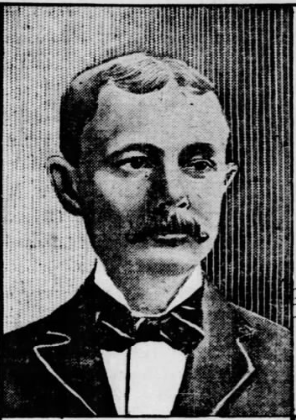
Michael Kenna, also known as "Hinky Dink", was an American politician who served as alderman of Chicago's 1st Ward from 1897 to 1923 and again from 1939 to 1943. In addition to his position as alderman he was committeeman of the 1st Ward for the Democratic Party from 1893 to 1944. Representing the Chicago Loop and later its environs in such capacities, he led what was often called the "world's richest ward". He and his partner, fellow 1st Ward alderman "Bathhouse John" Coughlin, controlled the ward for most of the first half of the 20th century.
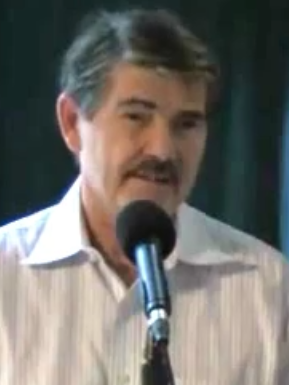
David Duvall Orr is an American Democratic politician who served as the Cook County Clerk from 1990 to 2018. Orr previously served as alderman for the 49th ward in Chicago City Council from 1979 to 1990. He briefly served as acting Mayor of Chicago from November 25 to December 2, 1987, following the death of Mayor Harold Washington. Orr retired from the office of Cook County Clerk in 2018, opting not to run for an eighth term.

The Pineapple Primary was the name given to the primary election held in Illinois on April 10, 1928. The campaign was marked by numerous acts of violence, mostly in Chicago and elsewhere in Cook County. In the six months prior to the primary election, 62 bombings took place in the city, and at least two politicians were killed. The term "Pineapple Primary" originates with the contemporary slang term "pineapple" to describe a hand grenade.

The Levee District was the red-light district of Chicago from the 1880s until 1912, when police raids shut it down. The district, like many frontier town red-light districts, got its name from its proximity to wharves in the city. The Levee district encompassed four blocks in Chicago's South Loop area, between 18th and 22nd streets. It was home to many brothels, saloons, dance halls, and the famed Everleigh Club. Prostitution boomed in the Levee District, and it was not until the Chicago Vice Commission submitted a report on the city's vice districts that it was shut down.

Lords of the Levee is a 1943 non-fiction book by longtime Chicago Tribune reporters Lloyd Wendt and Herman Kogan in one of three collaborations about the city of Chicago, focusing on its politicians "Bathhouse" John Coughlin and "Hinky Dink" Kenna, notorious alderman for the City of Chicago's lakeside First Ward. The book was reprinted in 1967 by Indiana University Press. In 1974, Indiana University Press published the book again under the title Bosses in Lusty Chicago, along with a new introduction by Illinois Senator Paul Douglas. The book appeared under its original title in 2005 when it was reprinted by Northwestern University Press.

James Bernard Bowler was an American politician from Chicago, Illinois. He served three terms as a United States Representative for Illinois. Elected at age 78, Bowler is the second oldest person to win his first election to Congress, after William Lewis of Kentucky.
Ike Bloom was an American businessman, cabaret and nightclub owner in Chicago from the turn of the 20th century and throughout Prohibition. An early organized crime figure in Chicago, he was an associate of "Big Jim" Colosimo and owner of some of the city's most popular nightclubs such as Midnight Frolics and Freiberg's, a well known dance hall in The Levee vice district at 20 E 22nd St. The Midnight Frolics was the club in which comedian Joe E. Lewis began his career in 1926.

The Gray Wolves were corrupt Chicago aldermen who held office from the 1890s to the 1930s.
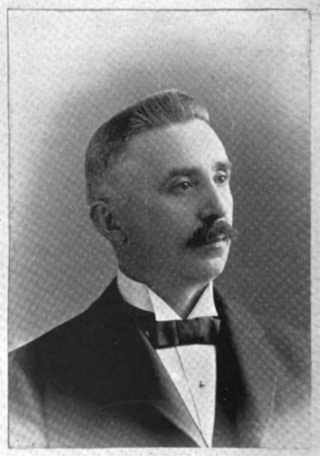
John Powers served as an alderman in Chicago, Illinois for the Democratic Party. He was known as Johnny De Pow by his constituents. Along with Bathhouse John Coughlin and Hinky Dink Kenna, Powers was considered one of the leaders of the "Gray Wolves" of Chicago politics.
The First Ward Ball was an annual political fundraiser with 10,000–15,000 attendees held in Chicago from 1896 until 1908, until the city revoked the liquor license in 1909. It was notorious for the riot-like behavior of the illustrious guests. According to the Chicago Tribune, the first ball in 1896 had "attracted a wild mix of society thrill seekers, police captains, politicians, prostitutes and gamblers" and "the 1908 ball made that affair look tame". Initially held at the 7th Regiment Armory, by the time it was banned the ball was so large that it took place in the Chicago Coliseum, the city's major convention center.

Mathias 'Paddy' Bauler was an American saloonkeeper and alderman of the 43rd ward of Chicago from 1933 to 1943 and again from 1947 to 1967. He was known as a corrupt, controversial and charismatic Chicago political boss and is famous for the quote, "Chicago ain't ready for reform yet", or "Chicago ain't ready for a reform mayor" which he exclaimed many times over while dancing a jig in his saloon upon the news of Richard J. Daley's first election as mayor of Chicago in 1955. Mayor Daley banned Bauler from attending public functions for a time shortly after the quote was published. He was the brother of Herman and John Bauler, who had respectively been aldermen from 1909 to 1911 and 1912 to 1920 when the area was part of the 22nd ward.
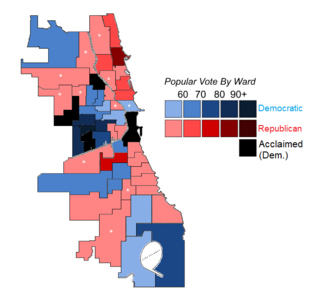
The 1929 Chicago aldermanic election was held on February 26, 1929, with a runoff on April 2, to elect the 50 members of the Chicago City Council. The elections were non-partisan. Held in the middle of mayor William Hale Thompson's term, it would be the penultimate midterm election; four-year terms for aldermen were adopted in 1935, coinciding with the mayoral election that year.

Dorsey Ryan Crowe was an American politician who served as alderman of Chicago's 21st ward from 1919 to 1923 and upon its redistricting into the 42nd ward from 1923 to his death. A Democrat serving most of the Near North Side, he represented such affluent constituencies as the Gold Coast and Streeterville as well as such poor areas as Cabrini–Green and Goose Island. At the time of his death he was the Dean of the Chicago City Council, as well as the last alderman from the era of partisan aldermanic elections and when wards elected two aldermen each. An alderman for 43 years, and the last to have served under a Republican mayor, he is as of 2018 the third-longest serving alderman in Chicago history, behind Ed Burke of the 14th ward and John Coughlin of the 1st.

In the Chicago mayoral election of 1899, Democrat Carter Harrison Jr. was reelected, winning a plurality of the vote and defeating Republican nominee Zina R. Carter, former Illinois governor John Peter Altgeld, as well as several minor candidates by a double-digit margin.
The Chicago Traction Wars was a political conflict which took place in Chicago primarily from the mid-1890s through the early 1910s. It concerned the franchise and ownership of streetcar lines. At the time it was one of the dominant political issues in the city and was a central issue of several mayoral elections and shaped the tenures of several mayors, particularly those of Carter Harrison Jr. and Edward Fitzsimmons Dunne.
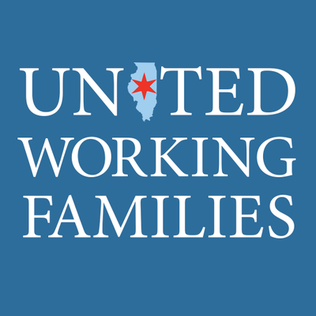
United Working Families (UWF) is an independent political organization based in Chicago, Illinois. It was formed in 2014 as a coalition between the Chicago Teachers Union, SEIU Healthcare Illinois Indiana, Grassroots Illinois Action, and Action Now. Although it is not a formal political party, the organization recruits and trains political candidates and organizers, endorses and provides support to political candidates, and engages in community organizing. Its stated goal is to "create space for independent politics" in Chicago and Illinois and to enact a "vision for a city and a state that provides for the many, not just the wealthy few." The organization has been characterized as part of the progressive movement and the labor movement.

Dick Weldon Simpson is an American professor, author, politician, activist, political consultant, and filmmaker who formerly served as a Chicago alderman from 1971 through 1979.
Christopher Cohen was Alderman of the 46th Ward of Chicago from 1971 to 1977. He was first elected to the Chicago City Council on February 23, 1971, with 60% of the vote. Because he received an absolute majority, no contest was required on the April 6, 1971 run-off election date. This was the same election that brought the newcomers Dick Simpson (politician), Edward Vrdolyak, Clifford P. Kelley, Marilou Hedlund and Anna Langford to the City Council. On February 25, 1975, Cohen was reelected 1975 with 63% of the vote also requiring no contest in the subsequent April 1, 1975 runoff.
References
- 1 2 3 Wendt & Kogan, p. 11
- 1 2 3 4 Wendt & Kogan, p. 12
- ↑ Wendt & Kogan, p. 13
- 1 2 3 Evans, Arthur (November 12, 1938). "Coughlin to Get Kind of Funeral That He'd Wish". Chicago Tribune . Chicago, IL: Tribune Co. p. 12.
- ↑ Maureen A. Flanagan. "Gray Wolves". Electronic Encyclopedia of Chicago. Chicago Historical Society. Retrieved March 22, 2008.
- ↑ Doherty, James (May 24, 1953). "The Story of Bathhouse John: Chicago's Fabulous First Ward Alderman Coughlin". Chicago Tribune .
- ↑ "Chicago's New City Council". Chicago Tribune. April 3, 1929. Retrieved July 25, 2018.
- ↑ "All Down But Nine: Out Of 34 Old Aldermen 25 Are Retired". Chicago Tribune . April 6, 1892. p. 1.
- ↑ Wendt & Kogan, p. 97
- ↑ p. 97
- 1 2 3 4 Wendt & Kogan, p. 98
- 1 2 3 4 Wendt & Kogan, p. 99
- 1 2 3 Wendt & Kogan, p. 100
- 1 2 3 Wendt & Kogan, p. 101
- ↑ Wendt & Kogan, p. 102
- 1 2 3 Wendt & Kogan, p. 103
- 1 2 Wendt & Kogan, p. 104
- 1 2 Wendt & Kogan, p. 107
- 1 2 Wendt & Kogan, p. 108
- 1 2 Wendt & Kogan, p. 123
- 1 2 Wendt & Kogan, p. 124
- 1 2 Wendt & Kogan, p. 125
- 1 2 Wendt & Kogan, p. 126
- ↑ Wendt & Kogan, p. 136
- ↑ Wendt & Kogan, pp. 136–137
- ↑ Wendt & Kogan, p. 139
- ↑ Wendt & Kogan, p. 140
- ↑ Wendt & Kogan, p. 172
- 1 2 3 Wendt & Kogan, p. 173
- ↑ Wendt & Kogan, p. 174
- ↑ "150,000 Women At Chicago Polls: Registration Shows They Will Hold Balance of Power in City Election". New York Times. February 4, 1914.
- ↑ "'Bath House John' Target For Woman: Miss Marion Drake Making a Hot Fight for the Chicago Alderman's Seat". New York Times. April 2, 1914.
- ↑ McCoy, Homer W. "Bathhouse John Coughlin Still Power in Ward" . The Dispatch. Vol. 55. Associated Press. p. 2. Retrieved April 7, 2019– via Newspapers.com.
- ↑ Wendt & Kogan, pp. 356–357
- ↑ Wendt & Kogan, p. 229
- ↑ Wendt & Kogan, p. 219
- ↑ Wendt & Kogan, p. 221
- ↑ Wendt & Kogan, pp. 221–222
- ↑ Wendt & Kogan, p. 222
- ↑ Fitzgerald, Doug (March 4, 2018). "'Bathhouse John:' Zoo Park's pickled pachyderm spiced up early 1900s Colorado Springs" . Retrieved March 17, 2019.
- ↑ McClelland, Edward (January 26, 2012). "The 12 Most Corrupt Public Officials in Illinois History: The Complete List". NBC Chicago. Retrieved March 17, 2019.
- ↑ Fremon p. 254
Bibliography
- Fremon, David K. (1988). Chicago Politics Ward by Ward. Bloomington, Indiana and Indianapolis, Indiana: Indiana University Press. ISBN 0-253-31344-9.
- Wendt, Lloyd; Kogan, Herman (1971). Bosses in Lusty Chicago (a.k.a. Lords of the Levee). Indiana University Press. ISBN 0-253-20109-8.
John Coughlin | |
|---|---|
 Coughlin circa the 1890s | |
| Alderman of the Chicago City Council | |
| In office 1892 –November 11, 1938 ServingwithJohn R. Morris (1892–1893) Louis I. Epstean (1893–1895) Francis P. Gleason (1895–1897) Michael Kenna (1897–1923) |
| International | |
|---|---|
| National | |
| Other | |